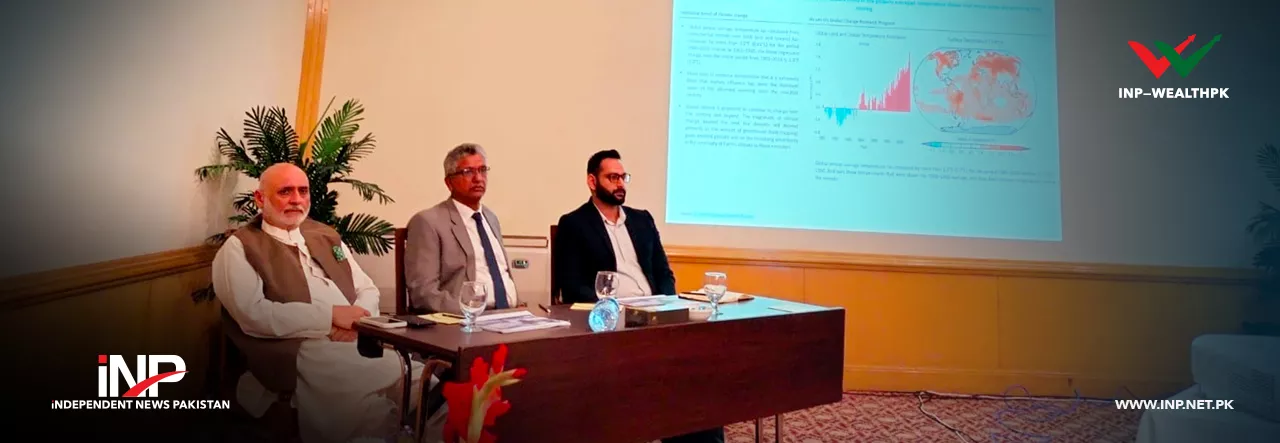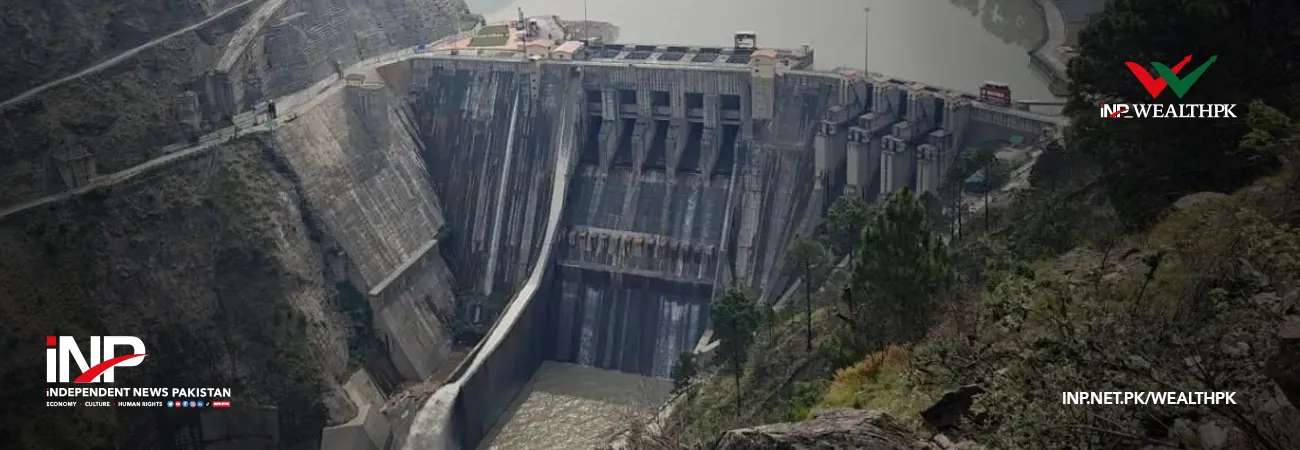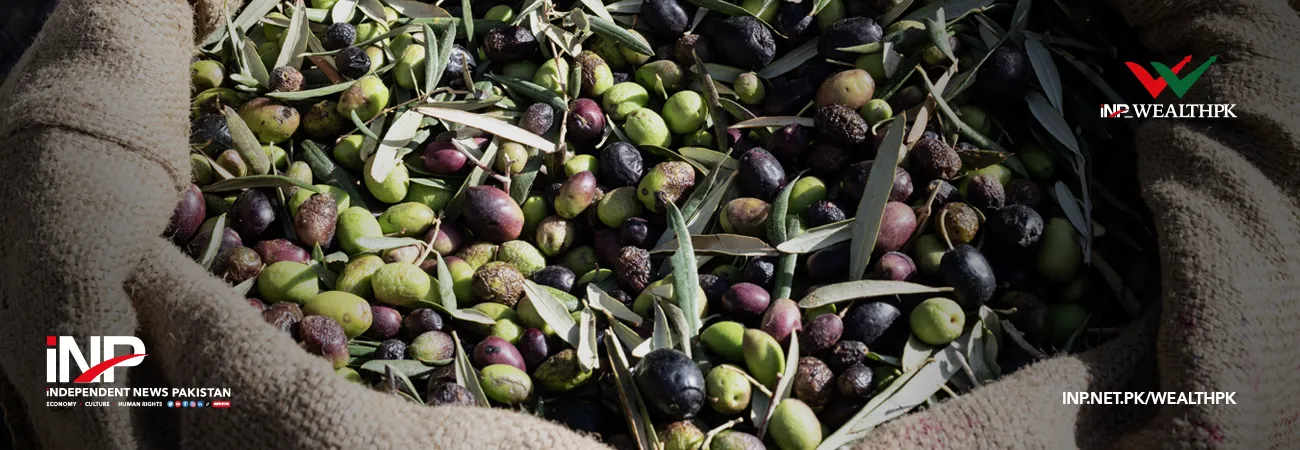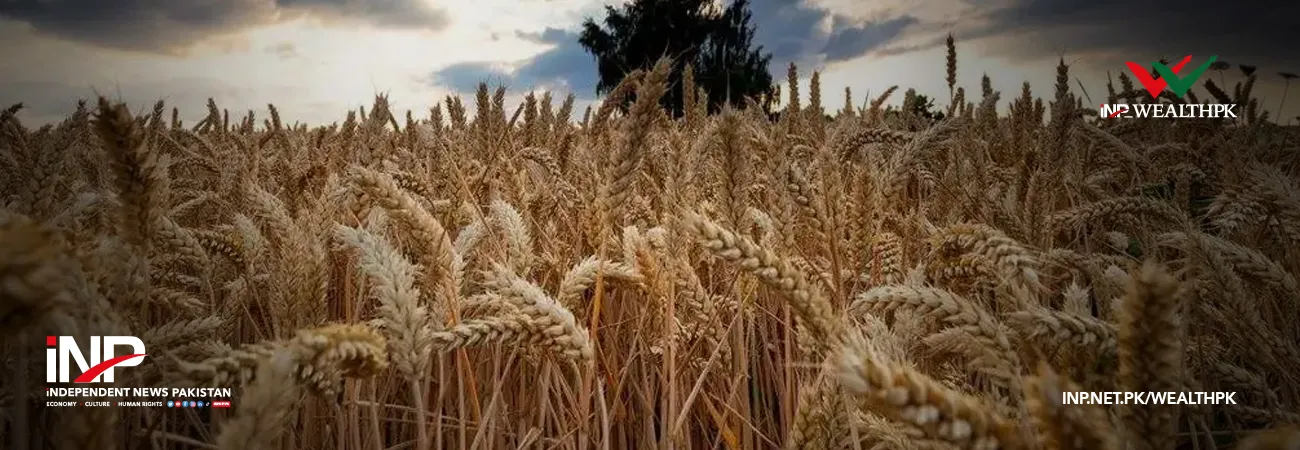آئی این پی ویلتھ پی کے
ISLAMABAD, Nov 03 (INP-WealthPK): Human activity is causing global temperatures to rise, and climate change now threatens every aspect of human existence. Unchecked global warming will have disastrous effects on humanity and ecosystems, including increased droughts, rising sea levels, and a mass extinction of species. Therefore, the developed world needs to take more responsibility for addressing climate change as humans' use of oil, gas, and coal in their homes, factories, and transportation are to blame for the rapid climate change we are currently witnessing.
In the seminar “KASB Climate Change” held on 3rd November, Chairman of KTrade Securities Limited, Muhammad Ali Farid Khawaja said that over the course of this century and beyond, the global climate is expected to continue to shift. The amount of greenhouse (heat-trapping) gases that are released into the atmosphere globally and the level of uncertainty that exists over how sensitive the Earth's climate is to those emissions will determine how much climate change there will be beyond the next few decades. He said beginning in April and lasting through September, Pakistan endures a heatwave. The monsoon season, which runs from June through August, is when there is the most rainfall. The historical distribution of Pakistan's yearly mean temperature reveals an upward trend in the average mean temperature over the previous seven decades (1951-2020), reports WealthPK.
Farid mentioned that however, the rise has been noticeably substantial over the last three decades (1991-2020). Additionally, the distribution curve has flattened, indicating increased temperature unpredictability and an increased risk of severe temperatures.
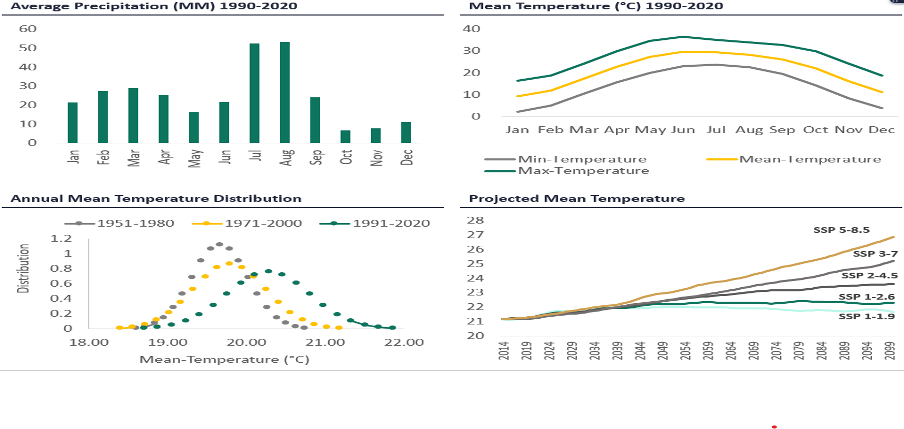
Farid said that the projected mean temperature is displayed along various Shared Socioeconomic Pathways (SSP), with SSP 1-1.9 denoting an extremely low greenhouse gas emission and SSP 5-8.5 denoting an extremely high greenhouse gas emission. He said during his speech that Pakistan's geography, ecosystems, and climate zones are all different. Despite natural variability, the average global surface temperature is rising. The Köppen-Geiger Climate Classification displays Pakistan's historical climate data across time. In contrast to the climate near the coast and along the lowland plains of the Indus River, which is often dry and hot, the country's lower southern half has an arid and hyper-arid environment, reports WealthPK.
Farid said since the majority of Pakistan's population lives around the Indus River, it is frequently hot there. As we go towards the northern uplands and the Himalayas, the environment gradually cools down, whereas the northern half of the country ranges from semi-arid to extremely humid. While talking about the Climate change impact on the agriculture sector, Farid said that the agriculture sector is Pakistan's economic engine, contributing over 23% of the country's GDP and employing about 37.4% of the labor force. Around 2.4 million (Ha) 2 of standing crops (including corn, rice, vegetables, sugarcane, fodder, and cotton fields) were reported to have been damaged by the flood, and more than 1.2 million2 livestock (excluding poultry) were said to have perished as a result of it.
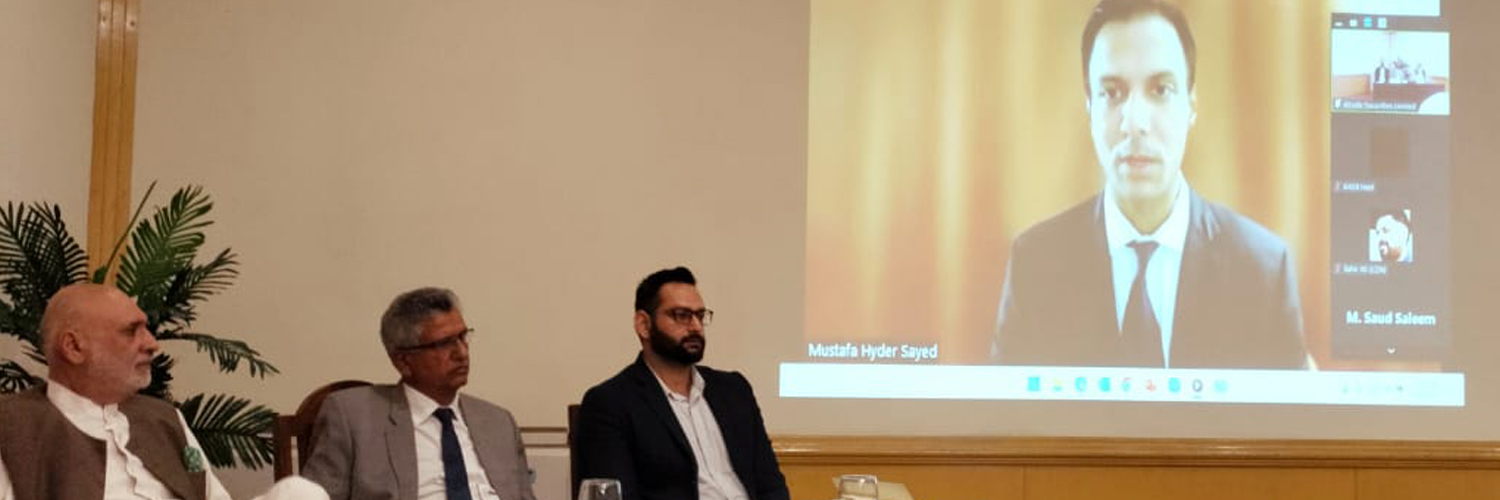
Similarly, to this, a recent flood in August 2022 affected 2 million acres of crops and almost 800,000 animals. According to the United Nations Framework Convention on Climate Change, wealthy nations should take greater financial responsibility for combating climate change and face more financial burdens. The US and EU should fulfill their pledge to provide developing nations with $100 billion in climate finance. Fair and reasonable emission standard reductions The industrialized world's climate change goals imply that these countries should be allowed to have larger carbon emissions per person. For instance, US President Biden has set a target of a 50–22% decrease in carbon emissions from 2005 levels by 2030.
Ahmed Shayan, Sustainability Lead at Engro group said during the event that in my opinion, and speaking on behalf of the Engro Foundation, Pakistan is the fifth most vulnerable nation in the world to the effects of climate change, though we can also benefit from them. The underlying issue is how to balance economic growth. We have launched numerous initiatives. Shayan said our company's main goal is to continue resolving issues that affect both the bottom line and the entire nation. We have been working on CSR for three to four years, and our main focus has been on lowering carbon emissions. We used the WWF and the Ministry of Climate Change as models. He said that Engro Polymer is focusing on trash management, systems, and plastic waste in Pakistan. By establishing research institutes and doing on-the-ground methodological research, we filled the knowledge gap and presented this research for further work to the relevant institutes and bodies.
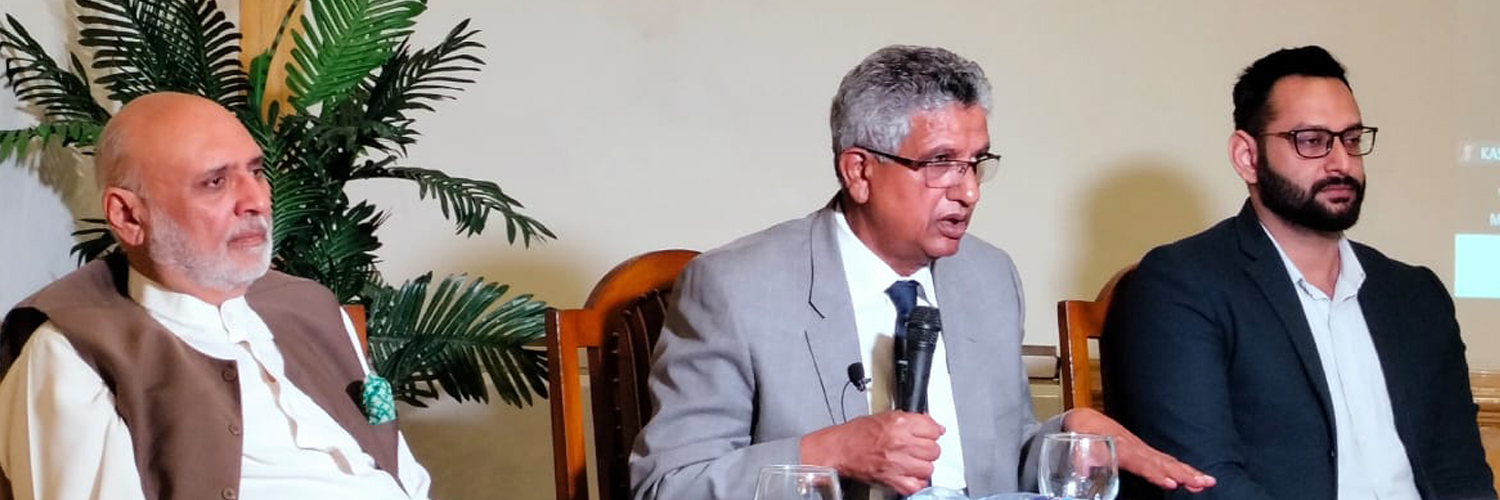
Furthermore, Nasir Ali Shah Bukhari, Chairman of KASB Group, and CEO of Sindhi forest said that the area’s flora is diverse and of exceptionally good quality thanks to nature. We have ceased planting Babul also known as Kiker because it can be cultivated wherever in the nation, including the desert. We should import the most recent technology that can cut carbon emissions to Pakistan so that we can reduce the ratio of climate change jointly with the scientists there. He also said what effect will one individual planting one for five rupees a year has on our flora and whether is it a good substitute for fodder. Nasir stressed that thirty percent of the soil is utilized to grow food, while forty percent is used to cultivate fodder.
Mustafa Hyder Syed, The executive director of Pakistan China Institute said during the seminar that as we talk about climate change and its effects in Pakistan, firstly, Pakistan is not a victim only. Pakistan is part of the solution. It is a root reminder for all of us that the climate change existential issue is at our doorstep and it has just come via Pakistan and all the countries around the globe if we do not stop it. He said that at this point the emitters in the west should come forward and take responsibility and ensure that the funds that are at odds with the people who have been affected by climate change, in the recent example of Pakistan, are given that compensation as they deserve and are entitled to.
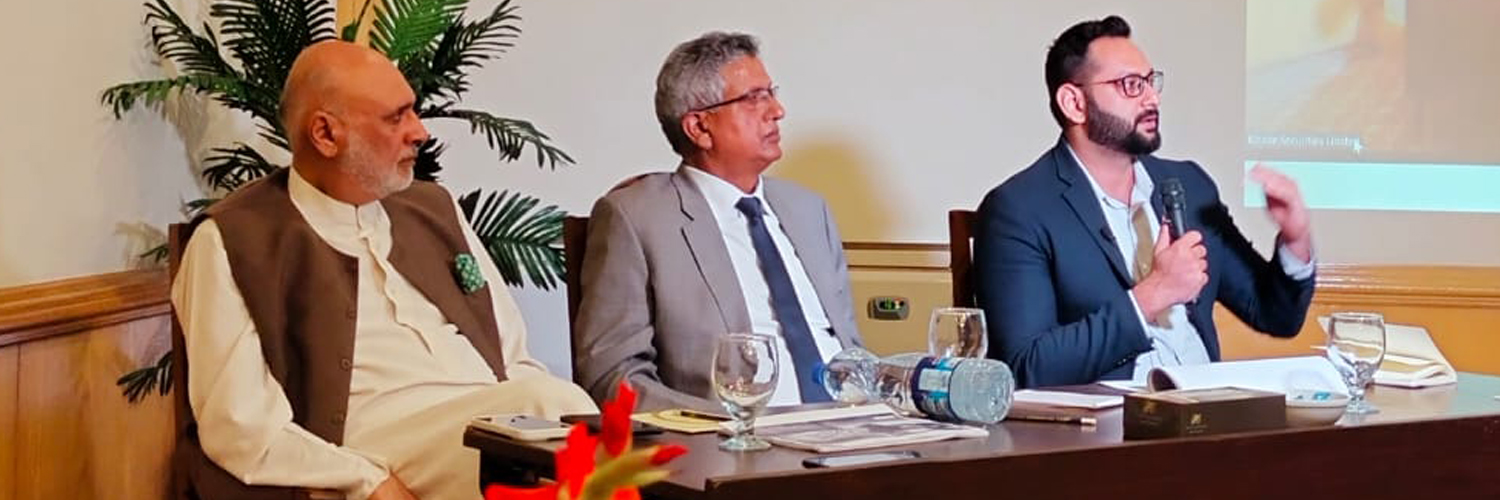
Syed Nasir Hossain, Former Inspector General of Forests added his point of view and said that Pakistan is susceptible to meteorological drought, which is typically brought on by a shortage in precipitation, and it has a 3% yearly median likelihood of experiencing severe meteorological drought. In the worst-affected districts, the prolonged drought between 2015 and 2017 had a negative impact on the agriculture industry, resulting in a significant loss in crop harvest of up to 53% and a reduction in livestock output of 48%. According to Nair, developed countries need to do more to combat climate change. Nasir mentioned that all corporations whether they are SMEs or others should join hands and come forward with better policies and possible solutions to reduce the rapidly increasing impacts of climate change.
Credit: Independent News Pakistan-WealthPk


